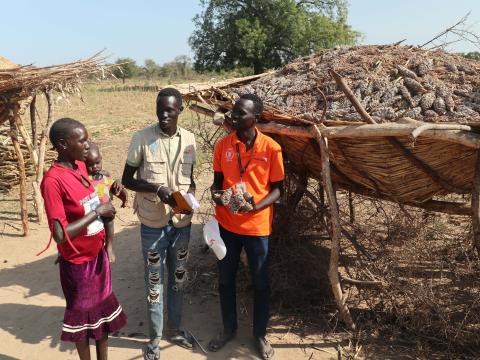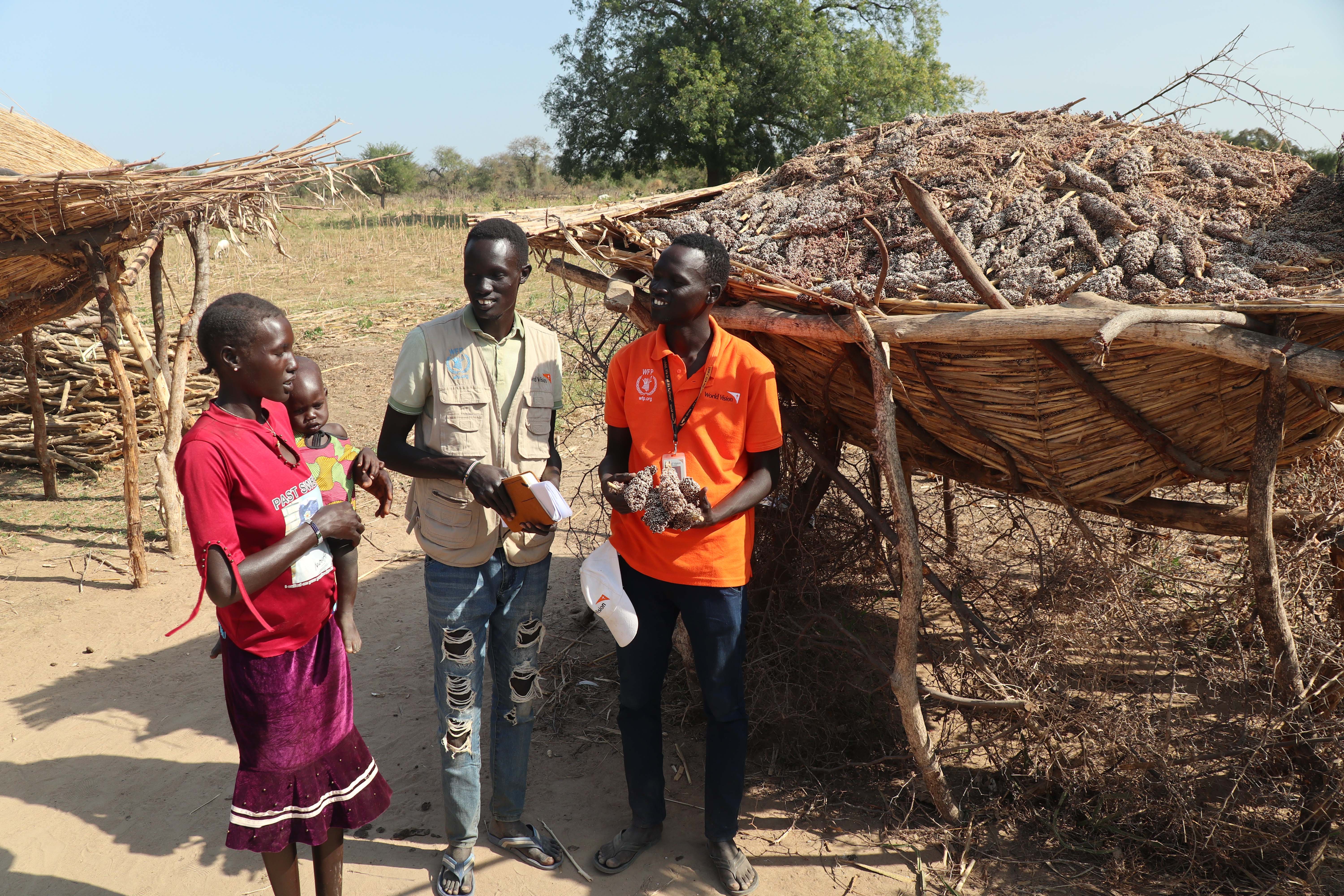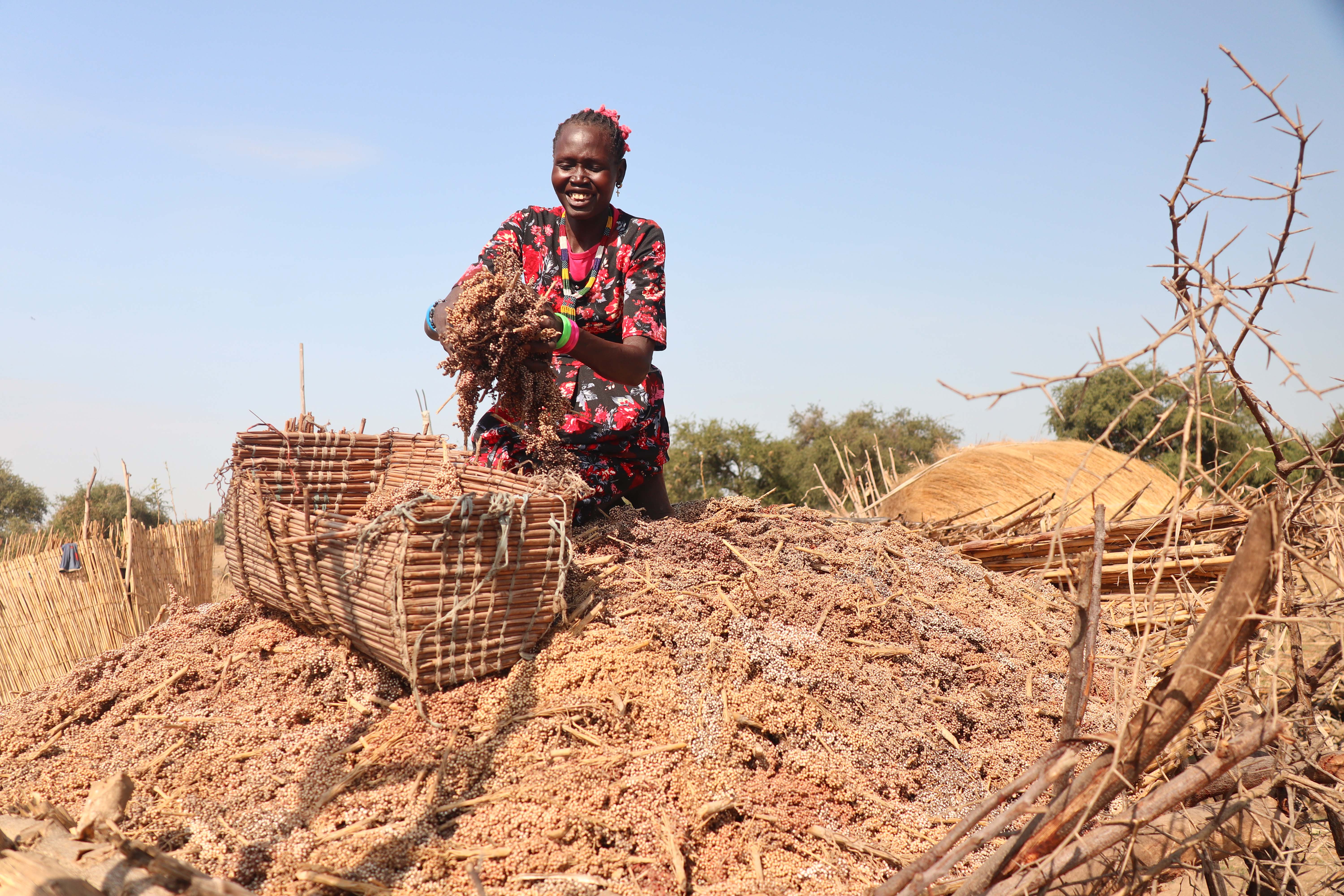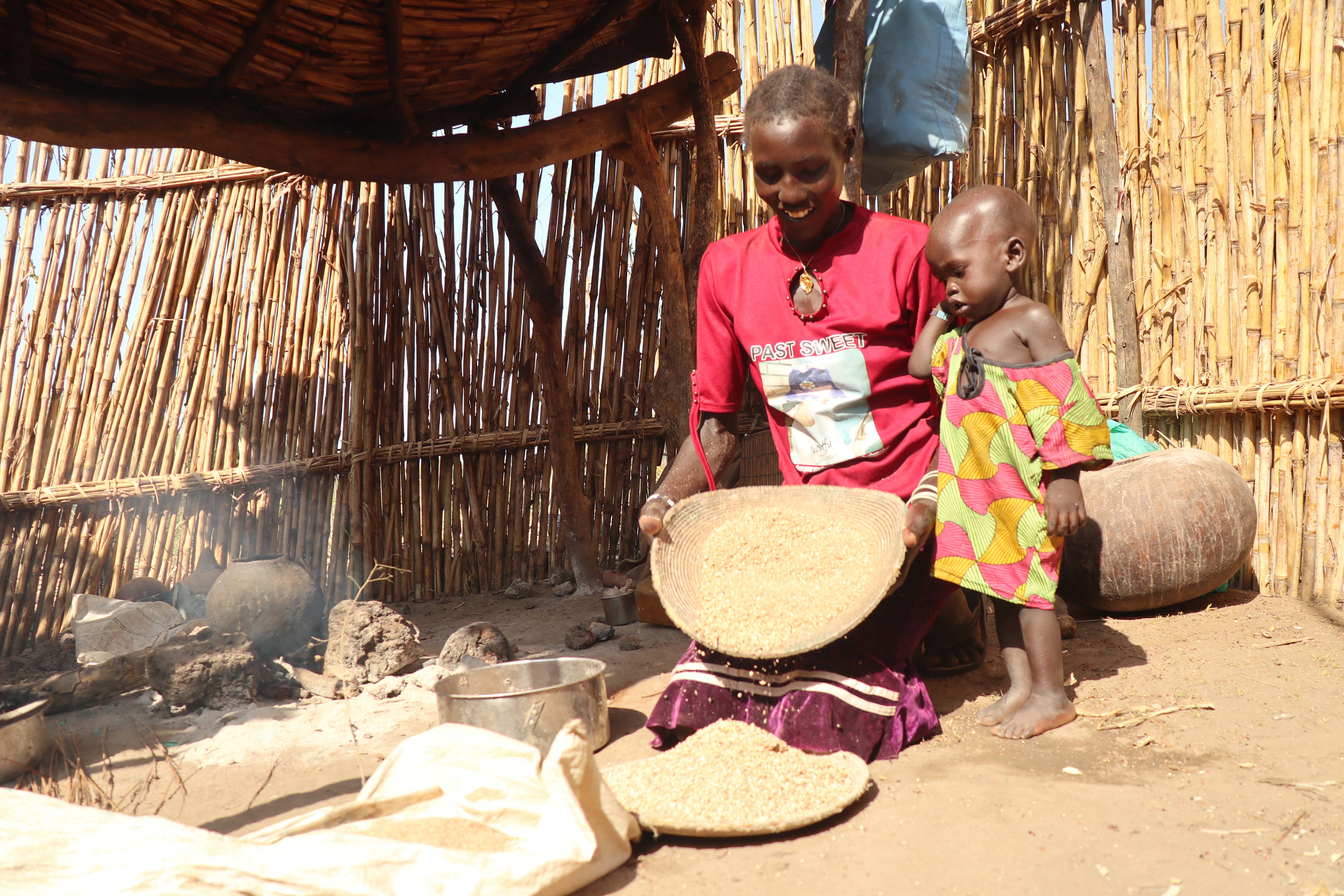Planting seeds of peace through community consultations, dialogues, and empowerment

Building peace starts with the willingness to listen. This is true in South Sudan. One village demonstrates how community dialogues, consultations, and farming are ending decades-old conflict and transforming communities to becoming happier and healthier.
In many parts of rural South Sudan, conflict, hunger, and malnutrition continue to proliferate and have all become familiar realities to many South Sudanese, especially children. Fortunately, the situation is starting to change as more communities are becoming more open to talking to each other to settle disputes and work together towards building a healthier, happier, and more peaceful future for children.
“One will either die from bullets or hunger,” laments 29-year-old mother, Akon. For many years, she, together with her five children, were always on the run for safety. They barely survived on wild fruits as they fled. Akon now lives in Tarweng, a village about 400 km northwest of South Sudan’s capital, Juba, where conflict arising from cattle raiding, ethnic tensions, and revenge killings used to be prevalent.
The violent clashes in Tarweng have caused frequent displacements and many deaths. Akon’s 18-month-old daughter was among those who did not survive. “We ran for days without food. I did not have milk for her to breastfeed. My child lost weight and became sick with diarrhea. Right in my arms I watched my daughter die,” she recounts.
Such had been the situation in Tarweng for many years. The conflict was so dangerous that it prevented humanitarian access. In 2021, the South Sudanese government intervened, and a period of calm followed. This gave World Vision an opportunity to engage with the community. With support from the World Food Programme and in partnership with the government, World Vision was able to conduct community consultations and conflict sensitivity analysis to understand better how various issues fueling the conflict in the Tarweng can be effectively addressed. The consultations aimed to create a fair and safe space for all community members to discuss the issues that had caused instability for years.

“We consulted with the affected communities from various backgrounds. We encouraged them to come together peacefully. It was important to help them see the benefits of how their lives would be without conflict and they worked together to find peaceful solutions. Then we began to work with them to address the root causes of poverty and discuss how we could provide humanitarian assistance and improve children’s lives,” says World Vision Food for Asset officer, Duony Kuch Duony.
The consultations and dialogues proved to be valuable as the community members discussed and agreed to allow humanitarian access for people who desperately needed assistance, especially the most vulnerable households. They also agreed to give priority to women-headed households, families with no one employed, people with disabilities, and malnourished children.
As the occurrence of conflict in Tarweng continues to cease, farmers are able to focus on planting crops again without much disruptions. World Vision also started to teach farmers how to boost their crop production with new techniques, such as row planting, crop spacing, and intercropping.
Akon’s household is among the 376 households that benefited from the programme in Tonj East County.
“I was intentional about learning the new skills because I did not want to lose another child to hunger, and we were given one feddan* per household, seeds and tools,” she says.

In 2021, the farmers in Akon’s village cultivated 91 feddans. In their second year, in 2022, they were able to cultivate 182 feddans, which doubled their harvest. Now they are on track to triple their harvest this year.
“I harvested 14 bags in the first year. I sold part of it and saved some for the family to consume. In 2022, I cultivated two feddans. I will sell the produce for the one feddans to send my children to school and cater for other needs,” Akon excitedly says. Thrilled with the outcome, Akon plans to save some of her profit for their food and seeds for the next season.
For another mother, Nyaruon, farming has helped bring the community together. She is also a member of Tarweng farmer’s group.

“With this farming initiative, our men will be busy in the farm rather than the unnecessary gatherings which I believe contributed to the conflict,” Nyaruon says.
"I am thankful to World Vision and the World Food Programme. We have survived the severe hunger period and our children’s health improved," she says, referring to the lean months between May and July this year.
*Feddan is a unit of measurement used to measure area in Egypt, Sudan, Syria, and Oman. One feddan is equivalent to 1.38acres or 4200.8 square meters.
Story and photos by Scovia Faida Charles Duku, Communications Coordinator